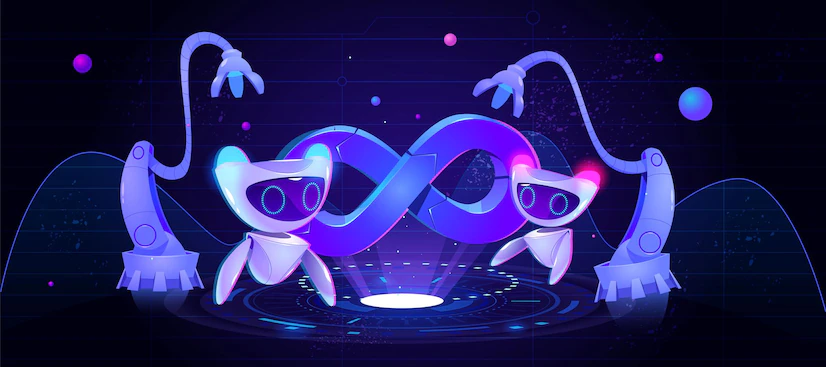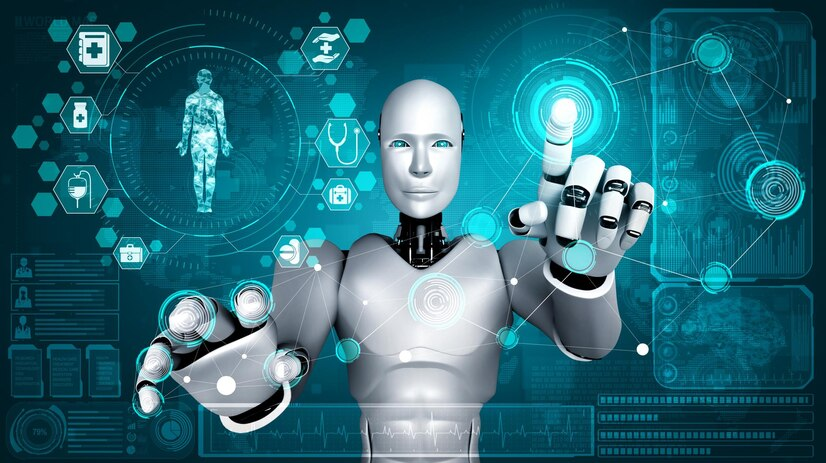Let's Discuss
Enquire Now Hey Google! What is NLP?
Hey Google! What is NLP?
“Natural language processing is a subfield of linguistics, computer science, and artificial intelligence concerned with the interactions between computers and human language, in particular how to program computers to process and analyze large amounts of natural language data.”
This is my latest conversation with my Google Assistant. Google is arguably the best companion we all approach when we are in doubt. Smart assistants like google assistants, Alexa, Cortona, Siri etc have already become a part of our daily life. Would it be possible if we weren’t introduced to a technology named “NLP”?
Hmm, maybe not, right?
NLP has made communication easier between humans and machines. Using Natural Language Processing (NLP), computers can understand human speech and text much better. They break language down into parts of speech, word stems and other linguistic features for machines’ easy understanding. This technology is adopted in different fields including Healthcare.
Health care is increasingly adopting natural language processing, due to its potential in searching, analysing, and interpreting enormous data sets. It is used for generating medical records, call centres, conversations, medical voices, soundbites, medical forms, regulatory filings, research reports, insurance claims, pharmaceutical documentation, and much more. By doing so, doctors are able to get holistic views of their patients quickly. It also helps health experts to track their patients, or pharma to draw insights from drug development research.
With the help of NLP technology, healthcare media can effectively voice unstructured data, giving access to new insights into better quality, improved methods, and better results. By utilizing this technology, health experts can invest more time in caring for patients and enrich the patient’s experience.

Although healthcare uses big data and analytics, it remains difficult to identify patients with complex medical conditions, making it difficult to study diseases, track practice patterns, and manage population health. Electronic medical records (EMRs) store an enormous amount of patient information. On a daily basis, huge volumes of unstructured patient data are inputted into EHRs (Electronic Health Records), but aggregating this critical data by physicians is a tedious task. Up to 80 percent of healthcare documents are unstructured, and so they go largely untapped since mining and extraction of these data are problematic and resource-intensive. This challenge can be overcome by using Natural Language Processing, which makes research more efficient and feasible by automating the process of studying large cohorts of patients without reviewing their charts manually. The process also produces much larger datasets resulting in more precise, generalizable conclusions.
With healthcare natural language processing, large sets of unstructured health data can be analyzed to discover previously missed or incorrectly coded conditions. Natural language processing of medical records using machine-learning algorithms like Decision trees, Support vector machines, Multilayer perceptron, Bayes classifiers etc, can uncover diseases that may not have been previously coded.
AI is proving to be useful in the medical industry in several ways, but the one that the industry is trying to take advantage of is the prevention of misdiagnosis. Doctors use AI to obtain a second opinion in conjunction with tools that can predict medical conditions. This can ensure cases of misdiagnosis are minimized. Moreover, it offers recommendations on medications to be taken and what has worked for other patients in the past. Pharmacy inventory is also improved by the tool in addition to providing better medical prescriptions.
The use of NLP in medicine is not without challenges. In order for NLP algorithms to be trusted, it is essential that the training data be unbiased. To use NLP safely as part of routine practice, clinicians will need training. It is likely that NLP applications will be integrated into the clinical environment in the future, suggesting problem lists, setting up patient triage systems, and interrogating vast amounts of free-text data, which will contribute to personalised, up-to-date evidence-based medicine.
There is always the fear that AI will eventually take our jobs. It is likely that, in the near future, AI will enable people to do more with their work and go beyond their specific roles in providing exceptional care that currently remains out of reach. For the time being, these systems do not replace the services of a doctor or medical practitioner. The idea is to facilitate/assist medical practitioners in their work.
So, where do you find a team that can help you implement an NLP system at your organization? You have us at your fingertips. You can count on our team to provide you with assistance if you are looking to use the NLP technology within your organization. Connect with us here.
Disclaimer: The opinions expressed in this article are those of the author(s) and do not necessarily reflect the positions of Dexlock.



